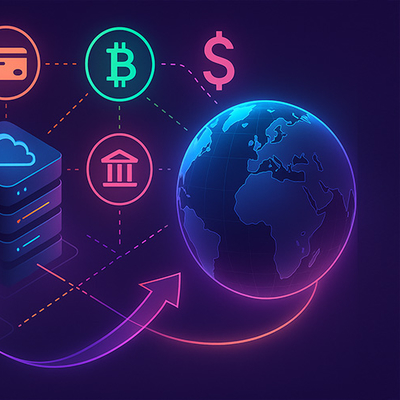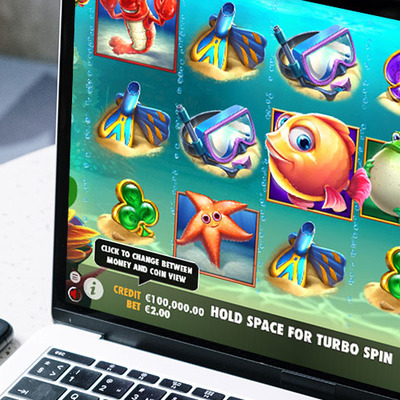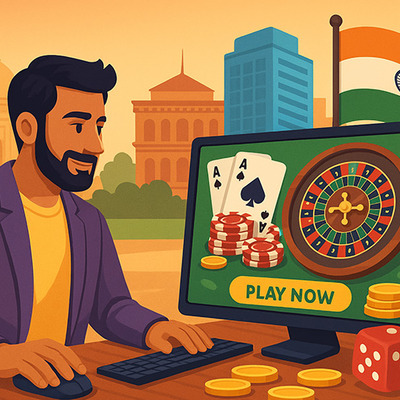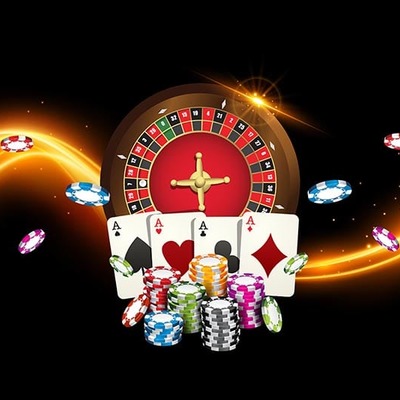Having Fun or Taking Bets? Online Gaming vs Online Gambling in 2026
Today, the line between iGaming and virtual gambling is thinner than ever. People often mix up these two terms and typically accept them as if they mean the same thing. In reality, they do not.
On one side, you have gamers in virtual worlds, on the other, there are punters in casinos. The experiences may feel similar on the surface, but the intentions, mechanics, and risks behind them are worlds apart.
If you are in the business or just curious about how digital entertainment is shifting, Smart Money is here to break down the real differences and similarities. Order a turnkey or White Label gambling project or purchase all the necessary gaming software for your platform.
What Is Online Gaming?

The typical way to define the activity is fun and competitive, whether it is a fast-paced battle royale on a console or a quiet puzzle app on a phone. Online gaming in 2026 is the digital playground where entertainment comes first.
Unlike gambling, this activity rarely revolves around winning real money. Players may buy game licences, unlock new features, or customise their avatars with stylish skins. Money-spending is optional. You can enjoy hundreds of titles without spending a single dollar.
What makes online gaming especially appealing today is its multifaceted nature. It is not just about the gameplay anymore. For many, it is a way to connect with others, train their reflexes, and even sharpen strategic thinking.
What defines online gaming in 2026:
- Interactive entertainment. Players join for the gameplay and receive the cherished fun, immersion, and challenge.
- Skill-building and strategy. Many games reward smart decisions, timing, and practice.
- In-game progression. Achievements, trophies, and leaderboards motivate players to strive for improvement.
- Social interaction. Teamwork and communication are often central, especially in multiplayer titles.
- Optional monetisation. Cosmetic items, expansions, and upgrades exist, but the core experience can be free.
- Minimal regulation. Age ratings and content warnings (PEGI in Europe, ESRB in the US) are the main legal requirements.
So, while the money factor can be applied in gaming, it is not the goal. The real win is entertainment, self-improvement, or enjoyment with friends. There is little luck required as it is typically about skill, persistence, and a good internet connection.
What Is Online Gambling?

Unlike gaming, where players mostly engage for entertainment, gambling is all about finances on the line for the chance to get more of it.
In 2026, the niche includes everything from classic casino games and sports betting to virtual slot machines and live dealer tables. It is a high-stakes environment built on unpredictability. Some games require skill, like poker or blackjack. Others, like roulette or slots, rely mostly on luck.
One thing remains constant here. There is always money involved. People do not just gamble to get rich. For many, the thrill of the game, the adrenaline rush, or even the escape from daily life are just as important.
What defines online gambling in 2026:
- Financial stakes. Real money is always part of the equation, as you can win or lose.
- Chance and risk. Outcomes are randomised and uncertain, which is part of the appeal.
- Legal oversight. Every legitimate operator needs a gambling licence and must follow strict laws.
- Player protection. Responsible gambling, anti-fraud systems, and AML compliance are mandatory.
- Diverse motives. Income hopes, thrill-seeking, strategic challenge, and stress relief all drive user engagement.
- Heavily regulated sector. Gambling laws vary across countries and often require individual platform licences.
Gambling, at its core, is about taking a calculated risk, though it can also be impulsive sometimes. If gaming is a digital playground, gambling is more like a high-stakes show where real money can have a huge impact in seconds.
What are the Key Differences Between Gaming and Gambling?
Despite being digital and interactive, the two forms of entertainment operate on very distinct principles.
The critical distinctions that separate the two activities:
- Main purpose. Online gaming is created for fun, learning, and social engagement, while gambling revolves around the possibility of financial gain and the thrill of chance-based outcomes.
- Use of money. In gaming, spending is optional and usually related to cosmetic upgrades or access to extra features. In gambling, money is always involved as you bet real funds in hopes of winning more.
- Influence of skill and chance. Gaming typically rewards aptitude, strategy, and quick thinking. Gambling, on the other hand, often depends on luck or mathematical odds, though some games like poker mix skill with risk.
- User motivation. Gamers usually play to be entertained, compete, or relax. Gamblers are driven by the possibility of monetary rewards, the excitement of risk, or a desire to escape routine.
- Regulatory oversight. Gaming is lightly controlled, as most regulations are focused on age ratings and content. Gambling is strictly monitored by governments and licensing bodies that require full legal compliance and responsible gambling tools from entrepreneurs.
- Psychological impact. Gaming can boost confidence and encourage collaboration. Gambling may lead to emotional highs and lows due to financial risks, and sometimes triggers problematic behaviours.
- Outcome expectations. In gaming, the result is influenced by player decisions. In gambling, outcomes are often uncertain, predetermined by algorithms or random events beyond the punter’s control.
- Access requirements. Most games are accessible instantly with or without payment. Gambling platforms often require identity checks, age verification, and account funding before participation.
- Reward system. Gaming incentives come in the form of virtual trophies, rankings, or story progression. Gambling rewards are typically monetary and can involve payouts, jackpots, or bonuses tied to betting.
- Cultural and legal status. Gaming is globally accepted as a form of entertainment. Gambling faces restrictions in many regions and is still seen as a high-risk or controversial activity in some cultures.
These key differences are essential for anyone who wants to navigate the expanding world of digital entertainment as a business operator, developer, or user.
Different Types and Forms of Entertainment
Now that you have clarified the fundamental differences, it is critical to examine the specific types of activities that fall under each category. Both directions cover a broad range of formats, but the nature and purpose behind them remain distinct.
Forms of Online Gaming
Players get to enjoy and thrive across multiple genres. These games may be competitive, cooperative, or purely casual, and they typically focus on user engagement, strategy, or storytelling.
Key types:
- video games (traditional titles played on consoles, PCs, or mobile devices);
- RPGs (activities where players assume character roles in immersive worlds);
- multiplayer titles (co-op and competitive modes, where players team up or face off in real-time);
- tabletops and strategies (digital adaptations of board games or logic-driven formats with turn-based planning and skilful execution).
Each of these categories encourages development, creativity, and collaboration, with optional in-game purchases or monetisation models that never guarantee financial returns.
Forms of Online Gambling
Punters get to engage with familiar casino and betting experiences in digital formats accessible from any device. Each type requires money to participate and offers a chance to earn real profit.
Key formats:
- slots (virtual machines with spinning reels, paylines, and randomised outcomes);
- card games (activities like blackjack or baccarat, where punters wager on their hands against dealers or each other);
- lotteries (interactions that have their results based entirely on luck);
- poker (a mix of skill and chance where strategy plays a significant role).
- roulette and wheels (based on predicting where the ball or arrow will land);
- Bingo (a game of chance with social elements and live number calling);
- sports and eSports betting (wagering on real-world matches, events, or tournaments).
Each gambling form involves a financial stake and regulatory control, with varying levels of complexity, risk, and user engagement.
Where Do Gaming and Gambling Overlap?
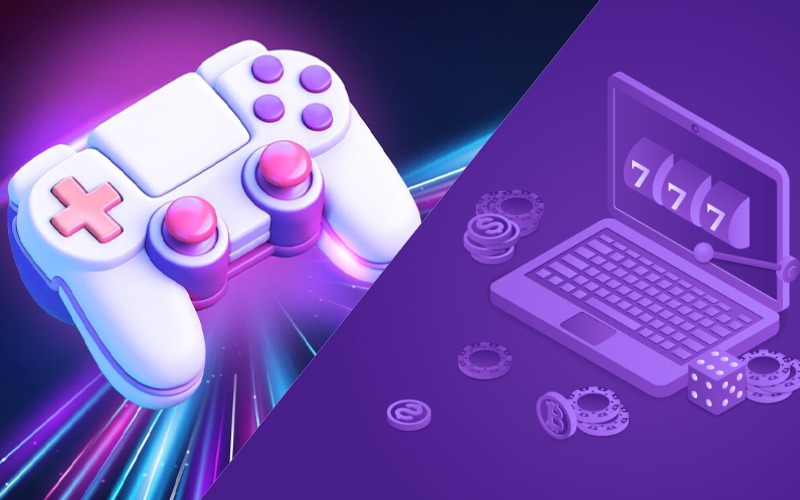
Although the two directions seem to belong to different worlds, the boundaries between them have started to blur. In 2026, the overlap is becoming harder to ignore. In some cases, the two even merge into entirely new hybrid experiences.
Terminology
In legal documents, “gaming” is often used as a more neutral or socially acceptable term for gambling. Casino operators, regulators, and lawmakers frequently refer to their activities as “gaming” in the official language, even though the activity involves real money and betting risks. This can be misleading for users, especially newcomers who associate “gaming” with harmless fun rather than financial risk.
eSports
Engaging in popular gaming activities clearly has nothing to do with gambling. Players compete in tournaments, hone their skills, and build careers through titles like League of Legends or Dota 2. However, betting on these matches places the activity squarely into the gambling category. As eSports wagering platforms grow in popularity, especially in emerging markets, the crossover between the two sectors becomes even more pronounced.
Gambling Elements
Some developers have added mini-casinos inside their titles, where players can spin virtual slot machines or play poker with tokens bought with real money. A prime example is the Diamond Casino update in Grand Theft Auto Online, which allowed players to purchase chips with real currency. The backlash was immediate, and many countries banned the feature due to its resemblance to real gambling.
Business Merge
A company might own a social gaming site and a gambling platform, using one to drive traffic to the other. Free-to-play activities simulate slot machines without real-money payouts and often become a stepping stone toward actual gambling. This is especially common when the same company controls both environments.
Real-World Rewards
Skin betting and loot boxes have turned random prizes into a parallel economy. While the core mechanics might look like gaming, the moment those items become tradable or carry monetary value, regulators start paying attention and often classify them as gambling.
This convergence brings opportunity and risk. For developers and operators, it opens doors to wider audiences and new revenue streams. For players, it demands a sharper awareness of where entertainment ends and wagering begins.
What Are the Key Trends and Rules?
As the digital industry grows more complex, this year continues to be the time when innovation and regulation are locked in constant shifts. On one hand, we have cutting-edge trends that reshape how people interact with gaming and gambling platforms. On the other hand, strict legal frameworks try to keep pace.
The Rise of AI
Platforms now run smarter, faster, and leaner thanks to Business Process Automation (BPA) and Robotic Process Automation (RPA). These systems handle player onboarding, KYC checks, bonus distribution, and fraud detection without human input. Telegram casinos are a great example. Entire gambling platforms now operate inside a messaging app, powered by bots that manage gameplay, payments, and customer support in real time. The simplicity and speed of these platforms make traditional web-based casinos look sluggish by comparison.
Gamblification of Online Entertainment
More casino sites now resemble video games, with levels, missions, achievements, and custom avatars. At the same time, nongambling activities continue to borrow wagering mechanics. Loot boxes and token-based mini-games add excitement but also raise red flags among regulators.
Global Gambling Regulation
Legal markets like the UK, Spain, or New Jersey offer structured licensing systems where operators must prove their commitment to player safety, financial transparency, and responsible interaction. These are the most stable and business-friendly environments.
Monopoly markets, on the other hand, allow gambling only through state-run or government-approved platforms. Operators cannot enter freely and must collaborate with legal entities. They often end up as software or backend services suppliers rather than proprietary brands.
Grey zones sit in the middle. These regions do not ban gambling outright, but they have no formal licensing processes either. That opens the door to offshore operators, although changes in local law can make the market unpredictable. Countries like Brazil and Japan have lived in this grey area for years, and while some are moving toward regulation, others remain unclear.
Prohibited markets like China, the UAE, or Indonesia enforce outright bans on all gambling activities, including foreign platforms that target local users. Operation in these zones is risky and can result in domain blocks, payment disruption, or even criminal charges.
Gaming Legality
While such companies often enjoy more freedom, they are not completely off the hook. In-game purchases, loot boxes, and reward mechanics have drawn scrutiny from lawmakers concerned about their resemblance to gambling. Some countries have even introduced loot box laws that require disclosure of odds or the limitation of sales to minors.
So, in 2026, if you build or run a gaming or gambling platform, you need to be just as creative in your legal strategy as you are in your design. Innovation is welcome, but only if it plays by the rules of each specific market.
The Main Things about Gaming vs Gambling in 2026
In today’s digital arena, entertainment takes many shapes. Any market participant must understand where and how the environment can assist or stop them.
Key points to keep in mind about the two entertainment directions:
- Gaming is designed for fun, growth, and community, while gambling centres on risk, money, and chance-based outcomes.
- The lines between the two directions have started to blur, especially through loot boxes, esports betting, and gamified casino interfaces.
- Automation and platforms like Telegram transform how gambling businesses operate with higher speed, scalability, and simplicity.
- In 2026, global regulations are tightening, and operators must stay sharp to comply with ever-changing legal frameworks.
- The risks of crossover are real for users who may not spot the difference and for businesses that overlook legal boundaries.
If your project treads anywhere near this frontier, be sure to map it with care. If in any doubt, the professional industry guide, Smart Money, can help you navigate this increasingly tangled territory.
Order turnkey or White Label solutions to set up a project from scratch or purchase all the necessary software pieces to upgrade your existing platform.
Check the information used to contact us carefully. It is necessary for your safety.
Fraudsters can use contacts that look like ours to scam customers. Therefore, we ask you to enter only the addresses that are indicated on our official website.
Be careful! Our team is not responsible for the activities of persons using similar contact details.


 Alderney
Alderney  Anjouan
Anjouan  Australia
Australia  Austria
Austria  Belgium
Belgium  Belize
Belize  Costa Rica
Costa Rica  Curacao
Curacao  Dominican Republic
Dominican Republic  Estonia
Estonia  Georgia
Georgia  Gibraltar
Gibraltar  Isle of Man
Isle of Man  Italy
Italy  Kahnawake
Kahnawake  Malta
Malta  Ukraine
Ukraine 

